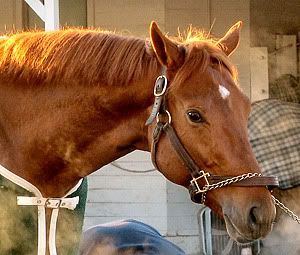
Following recent pushes for more stringent drug testing policies, the Kentucky Horse Racing Commission (“KHRC”) has approved an emergency regulation regarding out-of-competition drug testing for horses. Will Graves, Kentucky approves random drug testing, Lexington Herald-Leader, Sept. 7, 2010, available at http://www.kentucky.com/2010/09/07/1424227/kentucky-approves-out-of-competition.html. The urgency for such a rule arose when Churchill Downs signed the agreement, which requires more stringent testing, with Breeders’ Cup for the 2010 championship, which will be held at Churchill Downs November 5-6 of this year. Tom LaMarra, Kentucky Drug-Test Upgrade Needed for BC, Aug. 11, 2010, http://www.bloodhorse.com/horse-racing/articles/58327/kentucky-drug-test-upgrade-needed-for-bc. Breeders’ Cup has used out-of-competition testing for the last three years, in both California and New Jersey. Id. While Churchill Downs could have enacted a house rule, the KHRC wanted a more permanent rule, and with the Breeders’ Cup quickly approaching, the need arose for emergency regulation, which goes into effect almost immediately. Id.
The new regulations themselves are fairly stringent. The policy will allow the KHRC to test any horse eligible to race in Kentucky regardless of their location at any time for illegal blood-doping agents, growth hormones, and nerve-blocking venoms. Janet Patton, Proposed equine drug-testing rule questioned, Lexington Herald-Leader, Aug. 26, 2010, available at http://www.kentucky.com/2010/08/26/1406726/proposed-blood-doping-rule-questioned.html. This policy adds to current race-day testing, and is deemed to be necessary because while blood-doping agents are only detectable for a short period of time after being administered, the effects of such agents linger for weeks. Id. The new policy grants no more than six hours after notification for an owner or trainer to make a horse available for testing. Graves, supra. Refusal to submit to testing in that time makes the horse ineligible to race in Kentucky for six months, and a positive test for some of the drugs would impose a minimum five-year suspension and up to $50,000 in fines on the owner or trainer. Id. A second violation will result in a lifetime ban for that handler. Id.
The regulation will go into effect once signed by Kentucky Governor Steve Beshear and filed with the Legislative Research Commission. Id. The filing should occur in plenty of time for the Breeders' Cup, but only time will tell how easily enforced these new regulations will be.
No comments:
Post a Comment